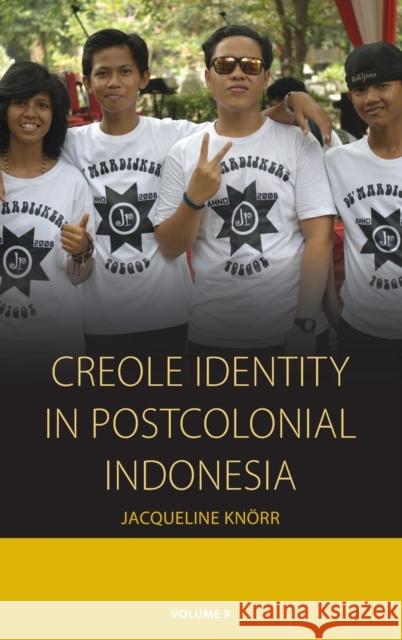Creole Identity in Postcolonial Indonesia » książka
Creole Identity in Postcolonial Indonesia
ISBN-13: 9781782382683 / Angielski / Twarda / 2014 / 236 str.
Creole Identity in Postcolonial Indonesia
ISBN-13: 9781782382683 / Angielski / Twarda / 2014 / 236 str.
(netto: 485,11 VAT: 5%)
Najniższa cena z 30 dni: 498,70
ok. 30 dni roboczych.
Darmowa dostawa!
Contributing to identity formation in ethnically and religiously diverse postcolonial societies, this book examines the role played by creole identity in Indonesia, and in particular its capital, Jakarta. While, on the one hand, it facilitates transethnic integration and promotes a specifically postcolonial sense of common nationhood due to its heterogeneous origins, creole groups of people are often perceived ambivalently in the wake of colonialism and its demise, on the other. In this book, Jacqueline Knorr analyzes the social, historical, and political contexts of creoleness both at the grassroots and the State level, showing how different sections of society engage with creole identity in order to promote collective identification transcending ethnic and religious boundaries, as well as for reasons of self-interest and ideological projects. Jacqueline Knorr is Head of Research Group at the Max Planck Institute for Social Anthropology and Extraordinary Professor at the Martin Luther University in Halle/Saale, Germany. She was brought up in Ghana and Germany and conducted extensive field research in Indonesia, West Africa, and Central Europe. She has worked as a Lecturer, Senior Researcher, University Professor, Scientific Director, and Political Advisor. Her research and publications focus on issues of identity, integration, migration, diaspora, gender, creolization, nationalism, and childhood.
Contributing to identity formation in ethnically and religiously diverse postcolonial societies, this book examines the role played by creole identity in Indonesia, and in particular its capital, Jakarta. While, on the one hand, it facilitates transethnic integration and promotes a specifically postcolonial sense of common nationhood due to its heterogeneous origins, creole groups of people are often perceived ambivalently in the wake of colonialism and its demise, on the other. In this book, Jacqueline Knörr analyzes the social, historical, and political contexts of creoleness both at the grassroots and the State level, showing how different sections of society engage with creole identity in order to promote collective identification transcending ethnic and religious boundaries, as well as for reasons of self-interest and ideological projects.Jacqueline Knörr is Head of Research Group at the Max Planck Institute for Social Anthropology and Extraordinary Professor at the Martin Luther University in Halle/Saale, Germany. She was brought up in Ghana and Germany and conducted extensive field research in Indonesia, West Africa, and Central Europe. She has worked as a Lecturer, Senior Researcher, University Professor, Scientific Director, and Political Advisor. Her research and publications focus on issues of identity, integration, migration, diaspora, gender, creolization, nationalism, and childhood.











